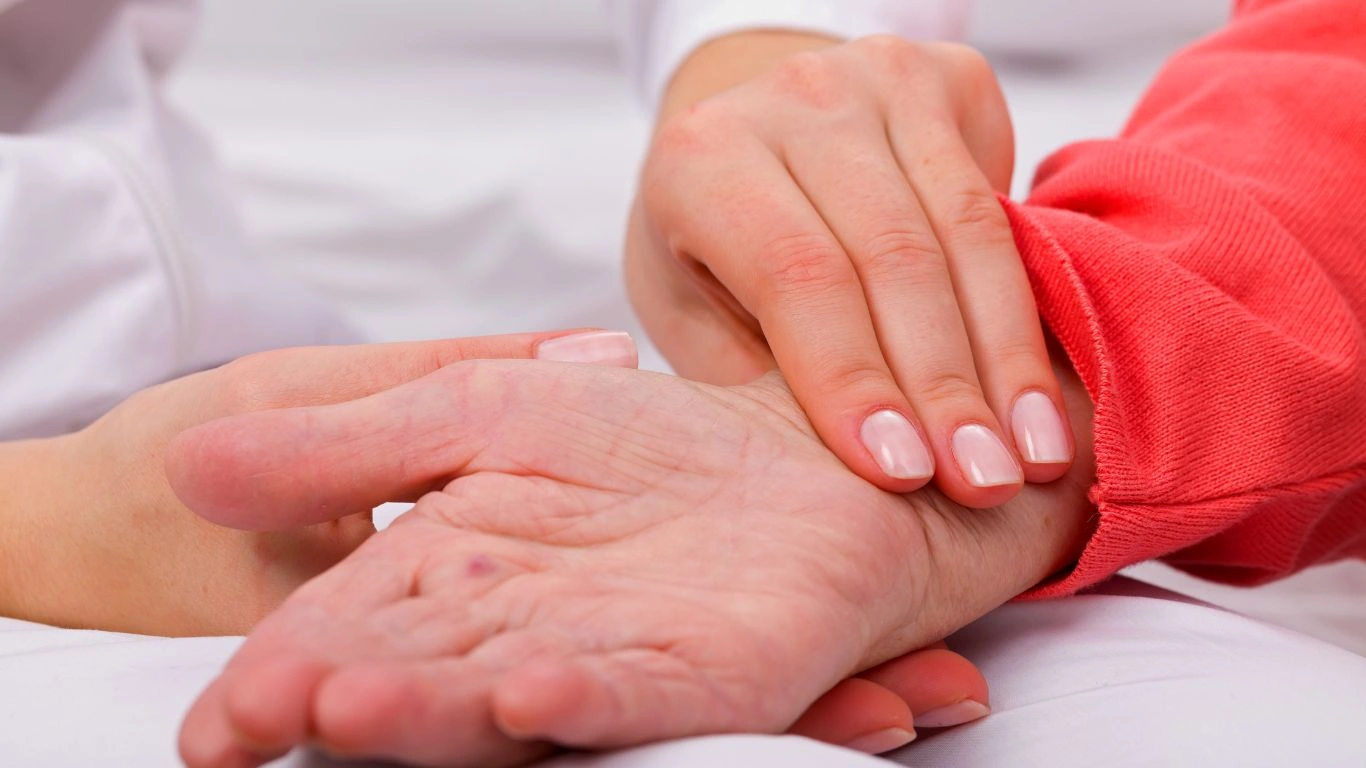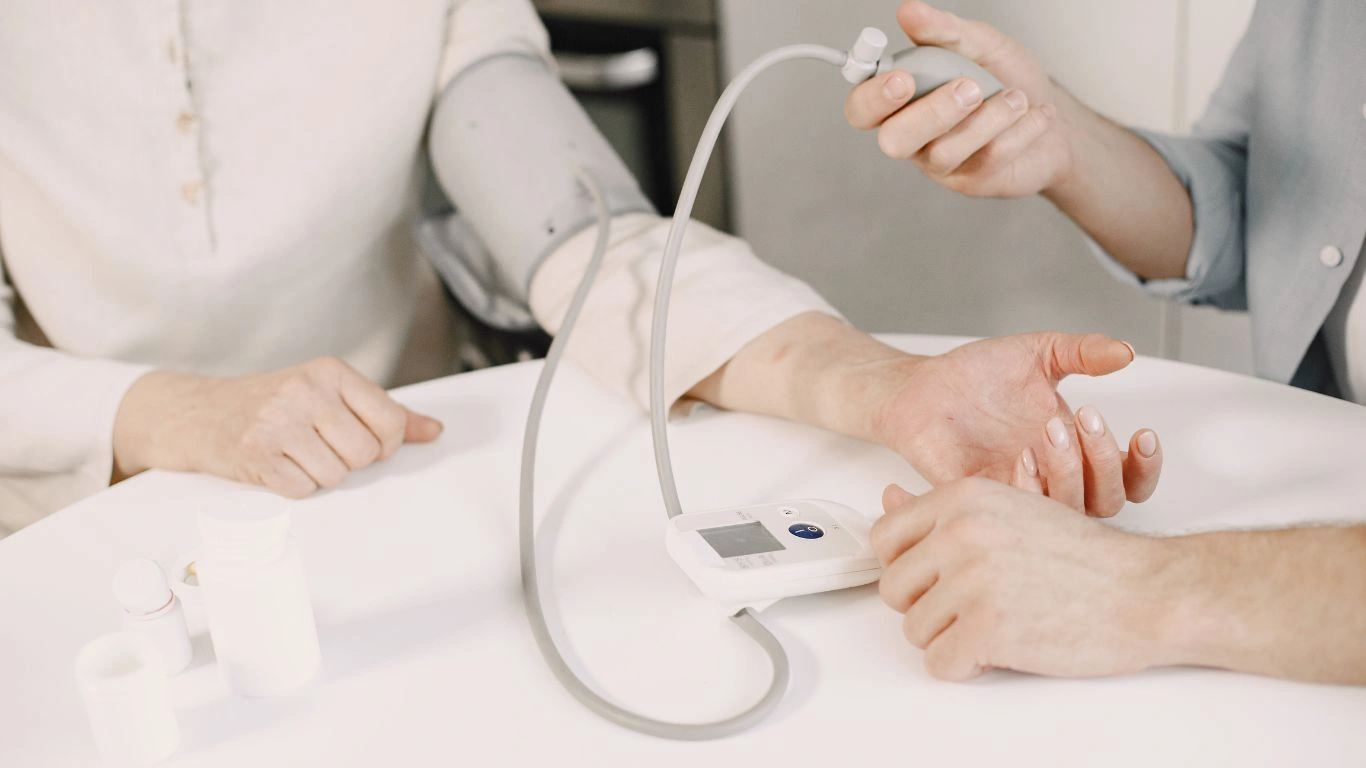Managing Blood Pressure with Traditional Chinese Medicine: Natural Remedies
Managing blood pressure is something I’ve spent a lot of time focusing on throughout my career as a hypertension expert. Over the years, I’ve come to realize that while conventional medicine offers many valuable tools, there’s a whole other realm of healing that deserves more attention—Traditional Chinese Medicine (TCM). If you’re tired of relying solely on medications or are curious about integrating holistic practices into your wellness routine, TCM could offer some interesting options for managing high blood pressure. In this article, I’ll dive into the principles behind TCM and how its natural approach might complement your existing efforts to regulate your blood pressure.
What is Traditional Chinese Medicine and How Does it Work?

Let’s start with a quick overview of Traditional Chinese Medicine. TCM has been around for over 2,000 years, and it’s an umbrella term for a variety of healing practices, such as acupuncture, herbal remedies, dietary therapy, and more. At its core, TCM is all about balance. The body’s vital energy, or Qi (pronounced “chee”), is believed to flow through pathways called meridians. If this energy is blocked or imbalanced, it can lead to physical or mental health problems—like high blood pressure.
In TCM, managing blood pressure isn’t just about lowering numbers on a chart—it’s about restoring balance within the body. This might mean addressing underlying factors such as stress, poor circulation, and an imbalance in the elements that TCM believes govern bodily functions—such as Yin, Yang, Blood, and Qi.
The Role of Acupuncture in Managing Blood Pressure

One of the most well-known practices in TCM is acupuncture. You might have seen people with needles placed in strategic points on their bodies and wondered if it really works. In my experience, it does. Research has shown that acupuncture can have a calming effect on the nervous system, helping to reduce stress and improve circulation—two key contributors to high blood pressure. Acupuncture works by stimulating specific points on the body that correspond to different organs and systems. For example, acupuncture points on the ear and wrist are often targeted to help regulate blood pressure.
But what’s most fascinating is how acupuncture isn’t just treating the symptoms; it’s addressing the root cause of the problem. For someone with hypertension caused by stress, acupuncture may help rebalance the body’s energy, calm the nervous system, and promote a more peaceful state of mind. This holistic approach can be a great complement to conventional treatments.
What to Expect During an Acupuncture Session
- Initial Consultation: The practitioner will ask about your medical history, lifestyle, and stress levels to create a personalized treatment plan.
- Needle Insertion: The thin, sterile needles are inserted into specific points on your body. Most people experience little to no pain, though you might feel a slight tingling or dull sensation.
- Relaxation: During the session, you’ll typically lie down and relax for about 20 to 40 minutes while the needles are left in place.
- Frequency of Treatment: The number of sessions required can vary depending on your condition and response to treatment. It might be once a week or more, but a practitioner will guide you based on your individual needs.
In my experience, clients often find that acupuncture not only helps with lowering blood pressure but also enhances their overall well-being by improving sleep quality and reducing feelings of anxiety.
Herbal Remedies for High Blood Pressure: A TCM Approach

Another cornerstone of Traditional Chinese Medicine is the use of herbal remedies. TCM employs a wide variety of herbs to promote blood flow, reduce inflammation, and support the cardiovascular system. While there’s a wealth of herbs used in TCM, I’ll touch on a few that are often used to support healthy blood pressure levels:
Common Herbs in TCM for High Blood Pressure
- Ginseng: Known for its ability to boost energy and circulation, ginseng can also help lower blood pressure in individuals with stress-induced hypertension.
- Hawthorn Berry: This herb is often used to strengthen the heart and improve blood flow. Studies have shown that hawthorn can help dilate blood vessels, thus improving circulation and lowering blood pressure.
- Danshen (Salvia miltiorrhiza): A popular herb in TCM, Danshen is used to improve heart function and regulate blood pressure. It’s known for its ability to enhance blood circulation and reduce blood viscosity.
- Lingzhi (Reishi Mushroom): Known as the “mushroom of immortality,” Lingzhi is prized for its ability to improve cardiovascular health by reducing blood pressure and cholesterol levels.
One thing to keep in mind when using herbs is that quality matters. It’s essential to work with a skilled practitioner who can tailor a specific herbal regimen for you. As much as herbs can help, it’s crucial to remember they’re not magic bullets—they work best when integrated into a comprehensive approach to health.
How TCM Views Diet in Blood Pressure Management
In TCM, food is considered medicine. It’s not just about what you eat, but also how you eat and how your food interacts with your body’s energy systems. While Western nutrition focuses on calories, fat, and carbs, TCM is more concerned with the energetic qualities of food—whether it’s warming, cooling, moistening, or drying. Foods that nourish Yin and Yang or help balance Qi are often recommended for those with high blood pressure.
- Cooling Foods: High blood pressure can sometimes be linked to excess heat in the body. Cooling foods like cucumber, watermelon, and mint help to balance this heat.
- Salty Foods: In TCM, excess salt can weaken the kidneys, which are thought to play a role in regulating blood pressure. Moderating your salt intake is often advised.
- Foods to Strengthen the Heart: Foods like barley, lotus seeds, and dark leafy greens are thought to support heart health in TCM.
By adjusting your diet in a way that aligns with TCM principles, you may find your blood pressure becoming more balanced over time. As with herbs, diet changes are most effective when part of a holistic plan that includes acupuncture and lifestyle changes.
Integrating TCM with Conventional Hypertension Treatment

As a hypertension expert, I’ve seen countless patients who are looking for ways to manage their blood pressure more effectively. One thing I always stress is that you don’t have to choose between Traditional Chinese Medicine (TCM) and conventional treatments. In fact, the two can complement each other beautifully. While Western medicine typically focuses on managing symptoms and regulating blood pressure through medications, TCM offers a holistic approach that aims to address the root causes of the problem—whether that’s stress, poor circulation, or even an imbalance of energy in the body.
If you’re on medication for hypertension, it’s important to first discuss any potential interactions with your healthcare provider before adding acupuncture, herbs, or other TCM treatments. But many of my patients have found that TCM practices work synergistically with their prescribed medications, offering a more well-rounded approach to their overall health.
How TCM Supports Your Body’s Natural Healing Process
One of the reasons I’m so passionate about TCM is its ability to support the body’s own natural healing processes. Unlike traditional medications, which often work by managing symptoms, TCM focuses on encouraging the body to restore balance. For those of you with hypertension, this means strengthening the circulatory system, calming the mind, and reducing the pressure on your arteries. This holistic perspective is something that resonates deeply with many of my patients who are tired of relying solely on medications that might come with unwanted side effects.
For example, acupuncture can help stimulate the body’s meridians to restore the flow of Qi, which in turn promotes relaxation and better circulation. In my practice, I’ve seen patients’ blood pressure readings improve after just a few sessions, thanks to the calming effects of acupuncture. Many of them also report feeling less anxious and more centered, which is a huge benefit when managing hypertension, as stress is a known contributor to high blood pressure.
The Impact of Lifestyle Changes in TCM for Blood Pressure Management

Managing blood pressure isn’t just about herbs and acupuncture; it’s also about making lasting lifestyle changes that support your overall well-being. TCM places a heavy emphasis on lifestyle factors like exercise, sleep, and emotional health. While Western medicine often treats hypertension as a standalone issue, TCM recognizes that high blood pressure is just one part of a broader health picture. By addressing other areas of your life—like stress, diet, and sleep—you can create a more supportive environment for lowering your blood pressure.
Stress Management: A Key Component of TCM
As someone who’s worked with many people suffering from high blood pressure, I can tell you that stress is one of the biggest culprits. TCM sees stress as a disruptor of Qi, which leads to imbalances that can manifest as physical ailments—high blood pressure being one of them. One of the key lifestyle changes I recommend is learning how to manage stress in healthy ways, such as practicing mindfulness, yoga, or Tai Chi. These practices not only help reduce stress, but they also align with TCM principles by encouraging the flow of Qi and restoring balance to the body.
Another practice I find incredibly beneficial is meditation. Taking just a few minutes each day to sit quietly and focus on your breath can go a long way in reducing the stress that contributes to hypertension. I’ve had patients who started practicing deep breathing exercises alongside their acupuncture treatments, and they’ve noticed a significant improvement in both their mental clarity and blood pressure levels. When you’re calm, your body responds in kind, and that includes lowering your blood pressure.
Herbal Supplements and Teas for Hypertension

Herbal remedies play a big role in TCM, and there are several herbs commonly recommended for managing high blood pressure. These herbs are often made into teas, capsules, or tinctures, and can help enhance your body’s natural ability to regulate blood pressure. One of the benefits of herbal remedies is that they can be customized to suit your unique needs and imbalances, providing a more personalized approach to hypertension management.
Herbal Teas to Lower Blood Pressure
If you’ve ever tried drinking herbal teas, you know how soothing and calming they can be. Certain herbs used in TCM are known to help with high blood pressure by promoting circulation, reducing inflammation, and calming the nervous system. Here are some herbal teas that I frequently recommend for my patients with hypertension:
- Hawthorn Berry Tea: This tea is rich in antioxidants and helps improve circulation, which is crucial for managing blood pressure. It’s also believed to strengthen the heart and promote healthy arteries.
- Chrysanthemum Tea: Known for its cooling properties, chrysanthemum tea is often used in TCM to help lower blood pressure, particularly when it’s caused by excess heat in the body.
- Ginseng Tea: Ginseng is an adaptogen, meaning it helps the body adapt to stress. It can also improve blood circulation and help regulate blood pressure, especially when it’s related to stress or fatigue.
- Turmeric and Ginger Tea: Both of these herbs are excellent for reducing inflammation and improving blood circulation. Turmeric, in particular, is known for its anti-inflammatory properties, which can help reduce the strain on your cardiovascular system.
In my experience, drinking these teas regularly—along with making other lifestyle changes like eating a healthy diet and staying active—can be a great addition to your blood pressure management routine. Plus, they’re delicious and calming, making them a great alternative to caffeine, which can sometimes spike blood pressure.
Customizing Your Herbal Routine
As with any treatment, it’s important to work with a qualified practitioner to create a herbal regimen that’s right for you. Some herbs may interact with medications, so it’s always best to consult your doctor before starting a new herbal routine. A TCM practitioner can help determine which herbs are best suited for your unique needs based on your symptoms and overall health.
Whether you’re drinking a cup of hawthorn berry tea in the morning or taking a personalized herbal supplement recommended by your TCM practitioner, these natural remedies can work alongside other blood pressure-lowering strategies to help you maintain better heart health.
How to Get Started with TCM for Blood Pressure Management

By now, you’re probably feeling intrigued about how to incorporate Traditional Chinese Medicine (TCM) into your routine for managing high blood pressure. I totally get it—this can feel like a whole new world of health practices. But don’t worry; getting started isn’t as complicated as it may seem. I’ve worked with many patients who have successfully integrated TCM into their lives alongside their conventional treatments. In this section, I’ll walk you through how you can start using acupuncture, herbal remedies, dietary changes, and lifestyle shifts to lower your blood pressure naturally. Trust me, it’s easier than you might think!
1. Find a Qualified TCM Practitioner
The first step to effectively managing your blood pressure with TCM is finding a qualified practitioner who can guide you. This isn’t something you should try to DIY, especially when it comes to acupuncture or herbs. A licensed acupuncturist or TCM doctor will take a comprehensive approach to your health and create a treatment plan that suits your specific needs.
When choosing a practitioner, I always recommend looking for someone who is not only certified but also experienced in treating hypertension. You can ask about their experience with blood pressure management, check patient reviews, or ask for recommendations from other healthcare professionals. Personally, I’ve seen patients who were skeptical at first but ended up seeing amazing results with the right guidance from a skilled TCM expert. A great practitioner will create a treatment plan that balances acupuncture, herbs, lifestyle changes, and more.
2. Start with Acupuncture
Acupuncture is often the first treatment I recommend for people starting out with TCM. It’s generally safe, effective, and doesn’t involve taking any pills. If you’re new to acupuncture, you may feel a bit nervous about the idea of needles. But I promise, they’re tiny and the process is relatively painless! In fact, most people describe the experience as deeply relaxing—sometimes even a little sleep-inducing. If you’re trying to manage high blood pressure, acupuncture can help by targeting specific meridian points related to circulation, stress, and heart health. It can be especially effective for those who have hypertension due to chronic stress, anxiety, or poor circulation.
In my experience, patients often notice improvements in their mood and energy levels after a few acupuncture sessions, which can be incredibly beneficial when you’re trying to manage blood pressure. You might even find that your stress levels drop significantly, which directly impacts your blood pressure.
3. Herbal Remedies for a Holistic Approach
When it comes to herbal remedies in TCM, the beauty of it is that herbs can be tailored to address your unique health needs. I always encourage my patients to consider working with a TCM practitioner to find the right herbs for them. Some common herbs used in the treatment of hypertension include hawthorn berry, ginseng, and chrysanthemum. These herbs have been studied for their ability to improve circulation, lower blood pressure, and support heart health.
But here’s the thing: TCM is all about balance, so it’s not just about popping a pill or drinking a tea and expecting immediate results. Consistency is key! I recommend incorporating herbal teas or supplements into your routine in a way that feels manageable. For example, you might start your day with a cup of hawthorn berry tea or take ginseng supplements as part of your morning routine. With continued use, you may notice your blood pressure stabilizing, along with improvements in your overall health.
4. Dietary Adjustments in TCM
In TCM, your diet is considered a vital part of your overall health. So when it comes to lowering blood pressure, what you eat plays a huge role. TCM practitioners often recommend foods that help balance your Qi, nourish your Yin, and support your heart health. This can include things like leafy greens, whole grains, and fruits that promote circulation. On the flip side, TCM suggests minimizing foods that create excess heat or dampness in the body, like greasy foods or too much salt.
- Cooling Foods: These are often recommended to reduce inflammation and balance excess heat. Examples include cucumbers, watermelon, and mint.
- Heart-Healthy Foods: TCM encourages foods that support the heart and circulation. These include dark leafy greens, beets, barley, and lotus seeds.
- Salt and Sugar Moderation: Excessive salt can stress the kidneys in TCM, which are associated with blood pressure regulation. Reducing both salt and sugar is crucial in TCM practices for blood pressure control.
While it can be overwhelming to change your diet, you don’t have to do it all at once. Start small by adding one or two TCM-approved foods to your meals each day, and gradually phase out processed foods that might be contributing to your blood pressure issues. Over time, you’ll likely notice that you feel more energized and balanced overall.
Maintaining a Consistent Routine
The key to managing your blood pressure with TCM is consistency. While acupuncture sessions or herbal supplements can provide immediate benefits, the real results come with a consistent practice. In my experience, patients who stick with their acupuncture appointments, drink their herbal teas daily, and make dietary and lifestyle adjustments tend to see the best results over time. Just like any form of healthcare, TCM works best when it’s part of a routine.
Some people may see improvement in a few weeks, while others might need several months to experience the full benefits. It’s important to remain patient and stay in touch with your practitioner to ensure your treatment plan is evolving as your body responds. I know it can be frustrating when results don’t happen immediately, but trust me—TCM is a marathon, not a sprint!
References and Resources
If you’re interested in learning more about Traditional Chinese Medicine and how it can help manage high blood pressure, there are some fantastic resources available:
- Health Usias – Explore more health articles and expert advice on hypertension and holistic treatments.
- Acupuncture.com – A trusted resource for finding certified acupuncture professionals in your area.
- TCM World – Learn more about the principles of Traditional Chinese Medicine and its application in modern healthcare.
Disclaimer: This article is for informational purposes only and should not be considered as medical advice. Always consult with your healthcare provider before beginning any new treatment or making significant changes to your health regimen, including acupuncture, herbal remedies, or dietary changes.

Dr. Gwenna Aazee is a board-certified Internal Medicine Physician with a special focus on hypertension management, chronic disease prevention, and patient education. With years of experience in both clinical practice and medical writing, she’s passionate about turning evidence-based medicine into accessible, actionable advice. Through her work at Healthusias.com, Dr. Aazee empowers readers to take charge of their health with confidence and clarity. Off the clock, she enjoys deep dives into nutrition research, long walks with her rescue pup, and simplifying medical jargon one article at a time.







